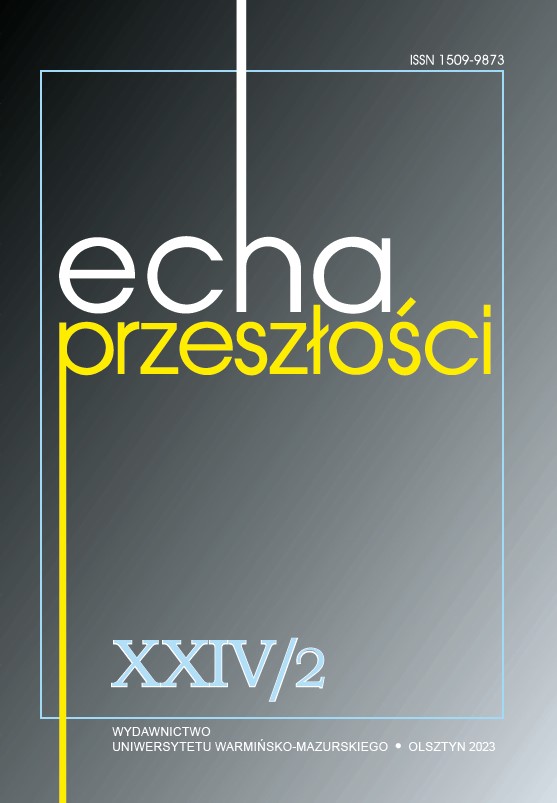Między szlachecką demokracją, rosyjskim samodzierżawiem a unicką duchowością – szkoła bazylianów w Humaniu
Between noble democracy, Russian autocracy, and Uniate spirituality – the Basilian school in Uman
Author(s): Igor Krywoszeja, Norbert MorawiecSubject(s): Military history, Political history, 18th Century
Published by: Wydawnictwo Uniwersytetu Warmińsko-Mazurskiego w Olsztynie
Keywords: Basilians; Uman; education; Uniates; unity;
Summary/Abstract: An attempt was made in this article to present the history of the Basilian school in Uman in the context of social and political transformations in the south-eastern regions of the Commonwealth during the late 18th and early 19th centuries. The authors claim that for several centuries, the Basilians’ educational system was inherent to the interactions of Polish and Ruthenian-Ukrainian, i.e. Catholic and Orthodox, cultural components. These interactions produced, in the Uniate mindset, the conviction that there was a unity within the Commonwealth, at both the national (Poles, Ruthenians, and Lithuani- ans) and denominational (Catholics of both rites) level. This unity was threatened by the Orthodox, who were both the external (Muscovy) and internal (Cossacks and the Commonwealth’s Orthodox clergy) enemies. The idea of unity metaphorized all thoughts and actions of Basilian monks, including their theology, historiography, and education. It was the Uman school, one of the most prestigious schools in right-bank Ukraine, which became part of the changes afflicting the fallen Commonwealth. Follow- ing the initial phase of its operation and the hiatus caused by the bloody events at Uman in 1768, the school developed significantly and prospered until it was shut down by the Russian authorities in 1834.
Journal: Echa Przeszłości
- Issue Year: XXIV/2023
- Issue No: 2
- Page Range: 55-88
- Page Count: 34
- Language: Polish

